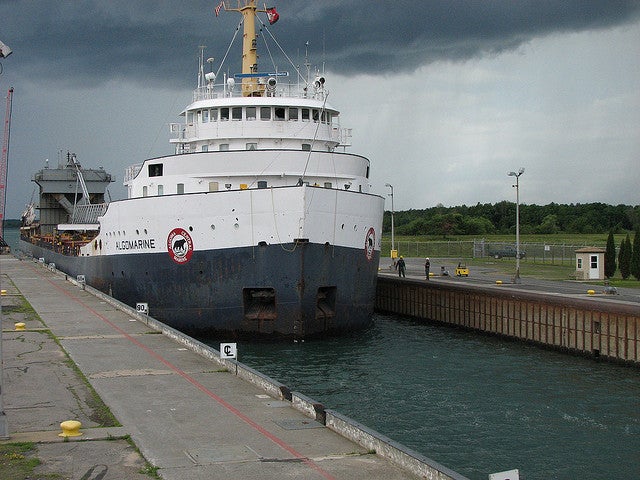If Canadian workers on the St. Lawrence Seaway go on strike Friday, as they currently plan to do, then shipments moving in and out of the Duluth-Superior port could be affected.
Duluth Seaway Port Authority spokeswoman Adele Yorde said grain shipments would be most impacted by a strike.
“We were at about 1.3 million tons last year of grain that moved out,” she said. “We’re running a little bit behind that this year because of the rail delays. Through September, we’ve only moved about 681,000 tons. There’s still a significant number that could be moved in these next two months.”
Stay informed on the latest news
Sign up for WPR’s email newsletter.
The workers who might strike are members of the major Canadian trade union Unifor, which is currently negotiating a new contract with the Canadian St. Lawrence Seaway Management Corporation. Andrew Bogora, a spokesman for the corporation, said a union agreement covering 460 Canadian workers expired in March of this year. He said negotiations broke down with the union, but that talks have since resumed with the help of a government mediator.
“Negotiations are continuing in earnest, and we remain optimistic that a fair negotiated settlement is still feasible,” said Bogora.
Should the union and corporation not reach a settlement by Friday afternoon, then the workers will strike.
Bogora said the sticking point in negotiations has been a change at the locks to a new hands-free mooring system. He said 67 jobs would be eliminated over the next five years. Currently, more than 100 Canadian workers who manually tie up ships.
Vessels will be flushed out of the locks if workers strike. According to a press release, Unifor is calling for emergency staff only at the locks should a strike occur.
Union representatives declined to comment while talks are ongoing.
Wisconsin Public Radio, © Copyright 2025, Board of Regents of the University of Wisconsin System and Wisconsin Educational Communications Board.





